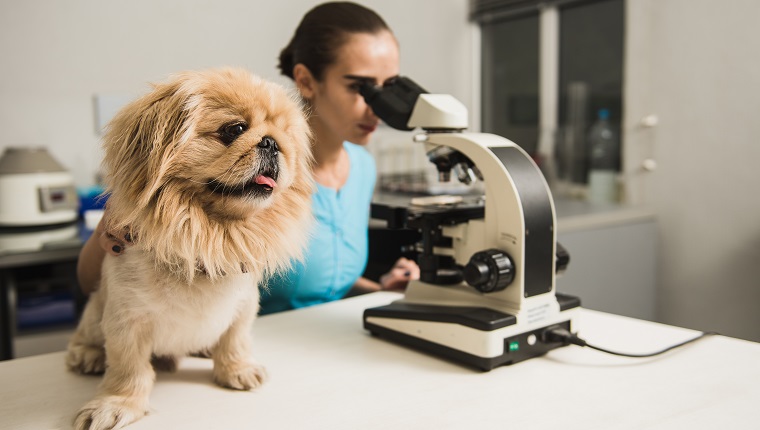Dog Cloning is, without a doubt, a controversial subject, not only because of the exorbitant price tag — a cool $50,000 — but also due to the ethical questions surrounding cloning in general.
Being such an expensive undertaking, only those of significant wealth and stature seem to have done it, or even consider it.
Knowing fully the attachment we feel with our animal companions, the idea of cloning them does have a certain emotional logic. But is it the right thing to do, with so many dogs in shelters without homes?
One Public Figure Considering Dog Cloning
View this post on Instagram
One public figure considering cloning her dogs is Sam Carrell, known primarily for her celebrity pups, Tinkerbelle & Belle. The former pup, Tinkerbelle, has her own Instagram page and is certainly beloved by Carrell.
At the time of this writing, WKRN reports that Carrell is just considering cloning Tinkerbelle. She has taken the initial steps in partnering with ViaGen; a prominent service for the cloning of dogs, cats, and horses, and has shelled out the $1,600 it costs to preserve DNA for the possibility of future cloning.
“I don’t know at this point,” Carrell says. “I’m happy that I have this wonderful partnership and the opportunity for Tinkerbelle’s DNA to be preserved.” But on the subject of moving beyond that preservation to the actual cloning stage, Carrell remains undecided.
View this post on Instagram
Melanin Rodriguez, of ViaGen, confirms what we all know — this isn’t a wildly popular service yet, due to the price tag. But, apparently, the interest is there. Rodriguez says that they have seen demand for preserving canine, feline, and equine DNA.
Apparently, having “the option” is appealing, and Rodriguez confirmed that the number of animals cloned has been on the incline.
Carell wouldn’t be the first public figure to clone her dogs if she decides to go that route. Barbara Streisand claims that two of her dogs are clones of her deceased Coton de Tulear, Samantha.
Should We Clone Dogs & Other Animals
Many animal advocates point out that cloning a dog, much like relying on a breeder, means that another dog in a shelter goes without a home.
While the idea of having an exact genetic copy of a beloved pet may appeal to some, why not pick out another dog from a shelter and fall in love all over again?
DogTime has an adoption page that lets you search for adoptable pets by breed and zip code. Take a look, and you may just find a new best friend!
In terms of endangered animals, the question of should we clone, or should we not, becomes murkier. Last year, an endangered black-footed ferret was cloned from the DNA of one who died thirty years earlier.
The difference, of course, is that cloning an endangered animal can preserve, support, or repair an ecosystem that we humans have disrupted through our own actions. It’s not about creating a companion animal.
As the science of cloning develops, the debate will continue over whether the practice is ethical and appropriate, both for pets and for non-companion animals.
What do you think about dog cloning, endangered animal cloning, and the subject of cloning in general? What are the pros and cons? Let us know in the comments below.









